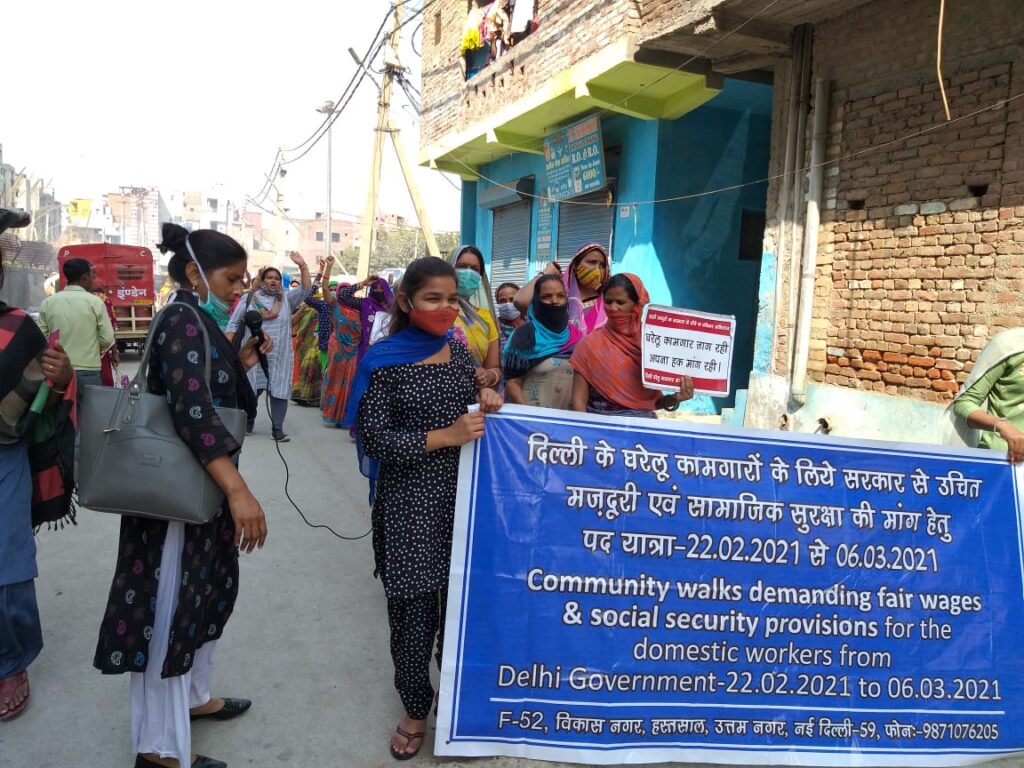An event was organized by Delhi Gharelu Kamgar Sangathana to strengthen the domestic worker’s voice for their social security and work rights.
Approximately 7-80,0000 lakhs women are working as domestic laborers in Delhi. Most of these women are poor and uneducated. All these women come from rural and backward area. Largely these women belong to dalit and backward communities. Many women are engaged in this profession since long time and this is the only source of their income by which they take care of their family members. These domestic laborers work in middle class and higher class houses. They are really marginalized and live their life at lowest level. They become more vulnerable when Government and those families who hire them do not take any responsibility of their wellbeing. After lockdown, gradually people are returning to their work and things are coming in its pace, but situation of these domestic workers are at margin. Ironically, the women who have been working for more than 20 years, they did not get their full wage as whatever days they worked they got that much only. During lockdown, they did not get any support either in the form of financial or food grains. The major problem with these women is that they are not entitled to get any kind of social security benefits. This is just because their work is not recognized by the society and the Government. And thus, all the problems start when these women are seen invisible in the largest informal workforce of the Country. Therefore, this event focused to unify the people and raise their voice against such discrimination prevails in the society.
As Kislay has organized this event in which 21 assemblies with domestic workers were held in 21 different basties of Delhi. After completing the sabha in these basties, a padyatra was planned in all 21 basties which focused to create an environment where more and more women can come together and make their sangathan stronger so they can put forward their issues while having dialogue with the Government. This padyatra was moved from these 21 basties and it was completed by 10th of March which was celebrated as women’s day with all these domestic workers.
